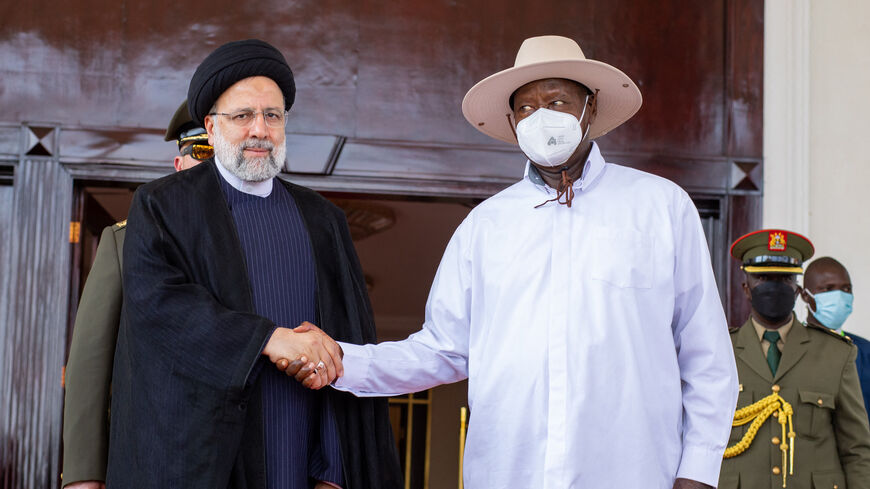UAE’s cryptocurrency ambitions to continue despite FTX crash
Al-Monitor Pro Members
Samuel Wendel
Senior Market Research Analyst, Al-Monitor
Nov. 30, 2022
The UAE has picked a bad time to embrace cryptocurrencies. The chaotic collapse of crypto exchange FTX has potentially imperiled the very future of an already volatile industry. This comes as MENA was the world’s fastest-growing crypto market in 2022 and the UAE has moved aggressively to attract crypto companies to the country. That saw Dubai’s newly created virtual asset regulator award a key license to FTX in July 2022, only months before it imploded. Binance, the world’s largest crypto exchange by trading volume and another controversial firm, has also secured licenses in the UAE. FTX’s downfall is now calling those moves into question. Despite this crypto calamity, the UAE doesn’t appear to be backing off from broader ambitions to become an industry hub.
- Bahamas-based FTX, once valued at $32 billion, filed for bankruptcy on Nov. 11 after users scrambled to pull billions from the exchange amid reports of misuse of customer funds.
- The collapse sent shock waves through the industry, with the crypto market overall shedding roughly $200 billion in November, according to CoinMarketCap data. Trading volumes on decentralized exchanges have reportedly spiked too, meaning users are pulling back from traditional exchanges.
- Other players now look vulnerable: The crypto brokerage Genesis is reportedly struggling to raise $1 billion to avoid a liquidity shortfall, with bankruptcy a possibility.
- This comes as the Middle East’s crypto market—although small—grew faster than any other region in 2022, fueled by everything from permissive regulations to remittance payments, according to blockchain data platform Chainalysis.
- Abu Dhabi and Dubai have built regulatory frameworks around crypto. That has seen them grant notable licenses to industry players in 2022, while the Dubai Multi Commodities Centre, a free trade zone, has reportedly attracted over 500 crypto companies.
- In March 2022, Dubai established the Virtual Assets Regulatory Authority, or VARA, a specialized regulator for crypto. In July 2022, FTX received approval for a minimum viable product license from VARA. That license has now reportedly been revoked following its bankruptcy.
- Singapore-based cryptocurrency hedge fund Three Arrows Capital filed for bankruptcy in July 2022, not long after news broke that it was relocating to Dubai thanks to its friendlier regulatory environment.
- In September 2022, Binance also earned a minimal viable product license from VARA, allowing it to offer virtual asset services to qualified investors. Its enigmatic CEO Changpeng Zhao has called Dubai the “Wall Street of crypto.”
- In November 2022, Binance also secured approval to provide services to professional clients from the Financial Services Regulatory Authority of Abu Dhabi Global Market, the emirate’s financial free zone.
- UAE officials have privately expressed concerns over the pace of regulatory approvals after the implosions of Three Arrows Capital and FTX, according to Bloomberg.
- Crypto-friendly policies in the UAE and neighboring Bahrain, which also has aspirations to become an industry hub, are unique, as many regulators are skeptical of the asset class. For instance, in 2021 China deemed all cryptocurrency transactions illegal.
- Binance is also currently being investigated in the United States for possible money laundering violations, reports Reuters. The firm is banned from operating in the UK and has faced issues with regulators in other countries too.
Scenario 1: The UAE rethinks crypto ambitions, scaring off key industry players. The FTX debacle and worsening market conditions push UAE regulators to adopt a more conservative approach. As that warm welcome cools, Binance shifts focus to other jurisdictions—as it has done previously when regulations threatened its interests.
Yet after adopting unusually proactive approaches to attract industry growth, both Dubai and Abu Dhabi seem unlikely to radically reverse course in the short term. Crypto firms will be closely watching for updates from regulators, but the relationship should endure in the near term.
Scenario 2: Unwilling to reverse course, the UAE becomes a cautionary tale as the crypto market collapses. FTX’s downfall kicks off a tailspin that sees other key crypto companies fail. After catering to some of these same players, the UAE faces significant criticism for regulatory missteps that empowered risky firms, damaging its reputation as a financial hub.
Still, the crypto industry has survived past debacles and could again. FTX’s crash may also see other jurisdictions become even more conservative, driving more crypto companies to view the UAE as a destination of choice.
Scenario 3: FTX’s implosion blows over, leaving the UAE to capitalize. The failure of FTX adds another chapter to crypto’s checkered history but doesn’t sink it. As the crypto winter thaws, the UAE emerges uniquely positioned to fuel the industry’s next growth wave after making moves most regulators avoided.
Yet it’s still too early to tell how far FTX’s wave of destruction will travel. Plus, its downfall already represents a regulatory failure and calls into question how closely it was evaluated before it won its approval.
For better or worse, the UAE forges ahead with its crypto ambitions unchanged in the short term. After bold moves to lure crypto businesses, the UAE looks poised to walk the tightrope between managing risk and capitalizing on efforts to attract industry growth. Signs already point to the UAE staying the course: Abu Dhabi Global Market gave Binance a new license less than a week after FTX’s bankruptcy, a vote of confidence in another controversial crypto player. The UAE appears to be betting that the market will stabilize after a rough November, with many of its ambitions now riding on the continued success of Binance. This correction may also motivate other countries to roll out better crypto regulations, which could further solidify the Gulf nation as a crypto leader if the market rebounds. Conversely, the UAE is now uniquely exposed to this volatile industry and regulators must tread carefully to avoid further embarrassment. Additional aftershocks could eventually compel it to reverse course, making this a space to watch in the coming months.
Samuel Wendel is a senior market research analyst with Al-Monitor covering economic, tech and business trends across the Middle East. He has previously served as a journalist with Forbes Middle East and Wamda, where he reported on key industry developments spanning a range of sectors in the region.
We're glad you're interested in this memo.
Memos are one of several features available only to PRO Expert members. Become a member to read the full memos and get access to all exclusive PRO content.

Already a Member? Sign in
The Middle East's Best Newsletters
Join over 50,000 readers who access our journalists dedicated newsletters, covering the top political, security, business and tech issues across the region each week.
Delivered straight to your inbox.
Free
What's included:
Free newsletters available:
- The Takeaway & Week in Review
- Middle East Minute (AM)
- Daily Briefing (PM)
- Business & Tech Briefing
- Security Briefing
- Gulf Briefing
- Israel Briefing
- Palestine Briefing
- Turkey Briefing
- Iraq Briefing
Premium Membership
Join the Middle East's most notable experts for premium memos, trend reports, live video Q&A, and intimate in-person events, each detailing exclusive insights on business and geopolitical trends shaping the region.
$25.00 / month
billed annually
$31.00 / month
billed monthly
What's included:
Memos - premium analytical writing: actionable insights on markets and geopolitics.
Live Video Q&A - Hear from our top journalists and regional experts.
Special Events - Intimate in-person events with business & political VIPs.
Trend Reports - Deep dive analysis on market updates.
We also offer team plans. Please send an email to pro.support@al-monitor.com and we'll onboard your team.
Already a Member? Sign in






